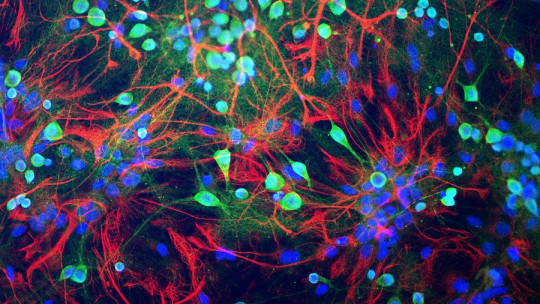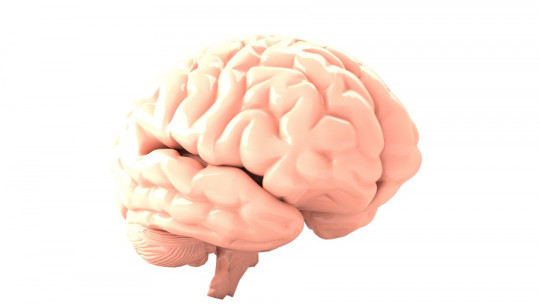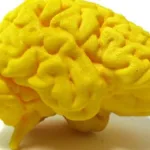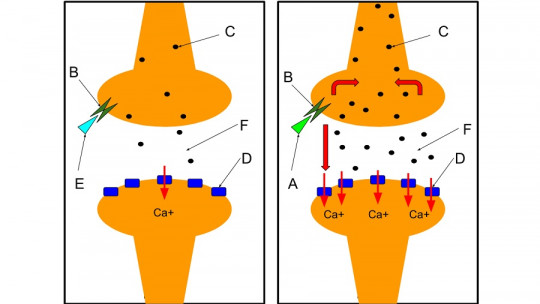What is magnesium good for? According to Faryadi (2012), Magnesium (Mg) is very beneficial for our health, influencing our bones, energy, heart, cerebrovascular system, muscular system, dental health, diabetes, emotion, calcification, stress, depression, anxiety and asthma.
It also indicates that people with magnesium deficiency are always tired, irritable, nervous, have stiff muscles and are difficult to concentrate. But is there really a link between Lack of magnesium and anxiety? Are they related? If you want to know more about a lack of magnesium, its implication on health and how to take it, keep reading! In this PsychologyFor article we explain it to you.
Relationship between lack of magnesium and anxiety
If you are wondering what magnesium is and what it is for, first you have to know that anxiety generates a lack of energy, among other things, a feeling of tiredness often caused by emotional stress and high physiological activation.
In these cases, one of the food supplements that is recommended to ingest is magnesium to relax, since it plays a very important role in the release and action of insulin. Additionally, magnesium helps with anxiety and depression because it converts glucose into energy.
Therefore, taking magnesium to sleep is also a great idea, since it regulates stress levels, since its deficiency is associated with the appearance of panic attacks
Symptoms of magnesium deficiency
The symptoms of magnesium deficiency occur in a state of hypomagnesemia, that is, they do not appear until the plasma magnesium concentration drops to values below 1.2 mg/day-l.
Symptoms of magnesium deficiency generally occur in the central or peripheral nervous system, musculoskeletal system, digestive tract, and cardiovascular system, but can occur in any other system of the human body. Now, how does magnesium affect the nervous system and so on? These are some of the symptoms:
- neurological defects and muscular.
- Spasm or injuries.
- Anorexy. See more information in How to prevent anorexia.
- Nausea.
- Muscular weakness.
- Lethargy.
- Weightloss (if the lack is prolonged).
- Hyperirritability.
- Hyperexcitability.
- Seizures
- Heart disease.
- High blood pressure.
- Osteoporosis
- Type 2 diabetes.
What causes a lack of magnesium in the body?
Magnesium deficiency is associated with cardiovascular abnormalities , including hypertension, acute myocardial infarction, arrhythmias, dyslipidemia and coronary artery disease; and is considered the bridge between various cardiovascular risk factors and atherosclerosis.
Hypomagnesemia produces changes in electrocardiograms, which are generally masked by those that cause other diseases and metabolic abnormalities
Why does magnesium deficiency occur?
In the general population, hypomagnesemia frequently occurs in patients with diabetes, chronic gastrointestinal disease, alcoholism, and users of certain drugs. Although this condition appears with higher risk in the elderly, since they are the ones who suffer the most from loss of appetite and loss of taste and smell.
What causes a lack of magnesium in the human body? Lack of magnesium or hypomagnesemia is the result of a magnesium deficiency that can be caused by:
- Kidney diseases.
- Chronic diarrhea
- Chronic alcohol abuse, since ethanol increases urinary loss by inhibiting reabsorption.
- Surgeries.
- Poor absorption.
- Loss of body fluid.
- Hormonal and kidney diseases.
- Nephropathy
- Treatments with diuretics.
- Hyperthyroidism.
- Pancreatitis.
- Diabetes.
- Disorders of the parathyroid glands.
- Post-surgical stress
- Rickets.
- Insulin resistance.
- Metabolic syndrome.
Causes of hypomagnesemia according to Higdon et al. (2007)
If you’re wondering “How do I know if I’m magnesium deficient,” this information may help guide you. And, according to Higdon et al. (2007), hypomagnesemia can be caused by four conditions:
- Gastrointestinal disorders: Prolonged diarrhea, Crohn’s disease, malabsorption syndromes, celiac disease, surgical resection of a portion of the intestine, and intestinal inflammation caused by radiation can lead to a decrease in magnesium.
- Kidney disorders: Diabetes mellitus and long-term use of certain diuretics may cause increased urinary loss of magnesium. Many other medications can also cause kidney loss of magnesium.
- Chronic alcoholism: Poor dietary intake, gastrointestinal problems, and increased urinary loss of magnesium, aspects often found in alcoholics, contribute to magnesium depletion. If you are interested in improving your health at this point, we can help you with our post on How to quit alcohol.
- Age: Several studies have found that older adults have relatively low dietary intakes of magnesium. Intestinal magnesium absorption tends to decrease with age and urinary magnesium excretion tends to increase; Thus, low dietary magnesium intake may increase the risk of magnesium decline in old age.

How to treat magnesium deficiency
In general, patients with hypomagnesemia should follow a diet rich in magnesium and the causes of hypomagnesemia should be treated if possible. If you are interested in knowing how to take magnesium for anxiety and depression, and incorporate it into your daily routine, along with all its benefits, check out our post on 11 Effective Natural Antidepressants.
However, patients with symptomatic hypomagnesemia must have a very different treatment and with different options:
- Intravenously. This way of obtaining magnesium is highly effective, cheap and well tolerated. Lack of magnesium or hypomagnesemia is defined by a plasma magnesium concentration of less than 1.7 mg/dL in the blood.
- Oral treatment It can be carried out in patients with moderate hypomagnesemia or after the use of parenteral magnesium, the appropriate dose is calculated according to the elemental magnesium contained in each salt and assuming a bioavailability of 33% with normal intestinal function (Reséndiz and Aguirre, 2008 ).
- Amiloride Use Patients with diuretic-induced hypomagnesemia who for some reason cannot discontinue diuretics may benefit from the use of amiloride. Apparently, amiloride would cause hyperpolarization of the cell membrane, which would favor the production of the transmembrane potential necessary for magnesium reabsorption
It is important to keep in mind the state of renal function prior to the administration of magnesium, since the kidney is the main route of excretion of the cation, a severe hypermagnesemia against the background of impaired renal function.
The neurological and gastrointestinal manifestations of patients with hypomagnesemia, hypokalemia, and hypocalcemia can improve with magnesium intake; Although the administration of calcium and potassium temporarily modifies the manifestations of the deficiency, the permanent solution requires correct the deficit of magnesium.
Foods with magnesium
You already know what diseases a lack of magnesium causes. Now we will tell you how to take magnesium for anxiety and depression; To do this, you should know that it is widely distributed in plants and foods of animal origin:
- Green vegetables mostly, since magnesium is an essential constituent of chlorophyll.
- Walnuts and other legume nuts.
- Fresh legumes, such as
- Oilseeds.
- Whole grains
- Seeds.
- Ground cereal grains.
- Dairy products, like milk.
- Tofu, which is prepared by precipitation of magnesium, is a good source.
- Seafood.
However, the most frequently consumed fish, meat and fruits (i.e. oranges, apples and bananas) are poor sources of magnesium. Just like refined and processed foods, which also contain low levels of magnesium.
This article is merely informative, at PsychologyFor we do not have the power to make a diagnosis or recommend a treatment. We invite you to go to a psychologist to treat your particular case.
If you want to read more articles similar to Lack of magnesium and anxiety, are they related? we recommend that you enter our Neurosciences category.
Bibliography
- American psychiatric association, (2014). Diagnostic and Statistical Manual of Mental Disorders DSM – 5. Madrid Spain. Pan-American medical publishing house.
- Baca-Ibañez, S., Ríos-Paico, P., and Rojas-Naccha, J. (2015). Importance of magnesium in the human diet. Agroindustrial Science, 5(2), 177-189.
- Carlson, N. R. (2014). Behavioral physiology. Madrid. Pearson Education, S.A.









